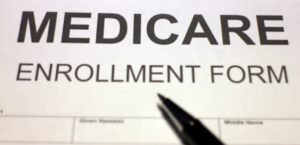Medicare overview. Complete Medicare Resource Center here:
877-88KEITH (53484)
A Basic Medicare Overview with 6 Points You Need to Know
Most Americans who work and contribute taxes through payroll can sign up for Medicare when they are of age or meet specific qualifications. People can enroll prior to their 65th birthday or during a specified enrollment period during the year. A Medicare overview for those interested in coverage should include understanding plan options based on personal health and income. The following points offer insight on what happens upon obtaining coverage.
1. First signing up for coverage can be done during your initial Medicare enrollment period when you turn 65. There is a 7 month window that includes the month you turn 65 in which you can sign up without incurring a penalty. This period begins 3 months before you turn 65, includes the month you turn 65, and ends 3 months after you turn 65. Consider planning your signup in advance to avoid penalty if you do not have another form of creditable coverage.
2. Medicare Part A and Medicare Part B coverage has coinsurance, deductibles, premium payments, and other out-of-pocket costs. You may qualify for free premium payments under Part A. Part B, however, will always carry a monthly premium. IN 2020, the standard monthly premium for Medicare Part B is $144.60, but may increase based on your income level.
3. Medicare Supplement coverage is an option available to anyone signed up for Part A and B. These plans are also known as MediGap plans. These Medicare Supplement plans cover the costs left behind by Medicare. You will be responsible for paying a premium with this policy but you can save money on medical expenses later.
4. Medicare Part B may cover specific doctor visits related to outpatient care. But, during initial enrollment you may qualify for a free physical with this coverage as a welcome to enrolling with Medicare.
5. You can sign up for prescription drug coverage, or Part D. You can enroll in a prescription drug plan when you first enroll in Medicare Part A and Part B. You can choose from a wide range of plans offered by private insurance companies approved by Medicare. There is a late enrollment penalty if you fail to sign up for coverage during the designated period or you didn’t have coverage when you signed up for other Medicare options.
6. Review services and costs not covered by Medicare. Some routine services such as vision and hearing are not covered. Extensive long-term services in an assisted living facility or nursing home are not covered. Hearing aids and dentures are not covered.















